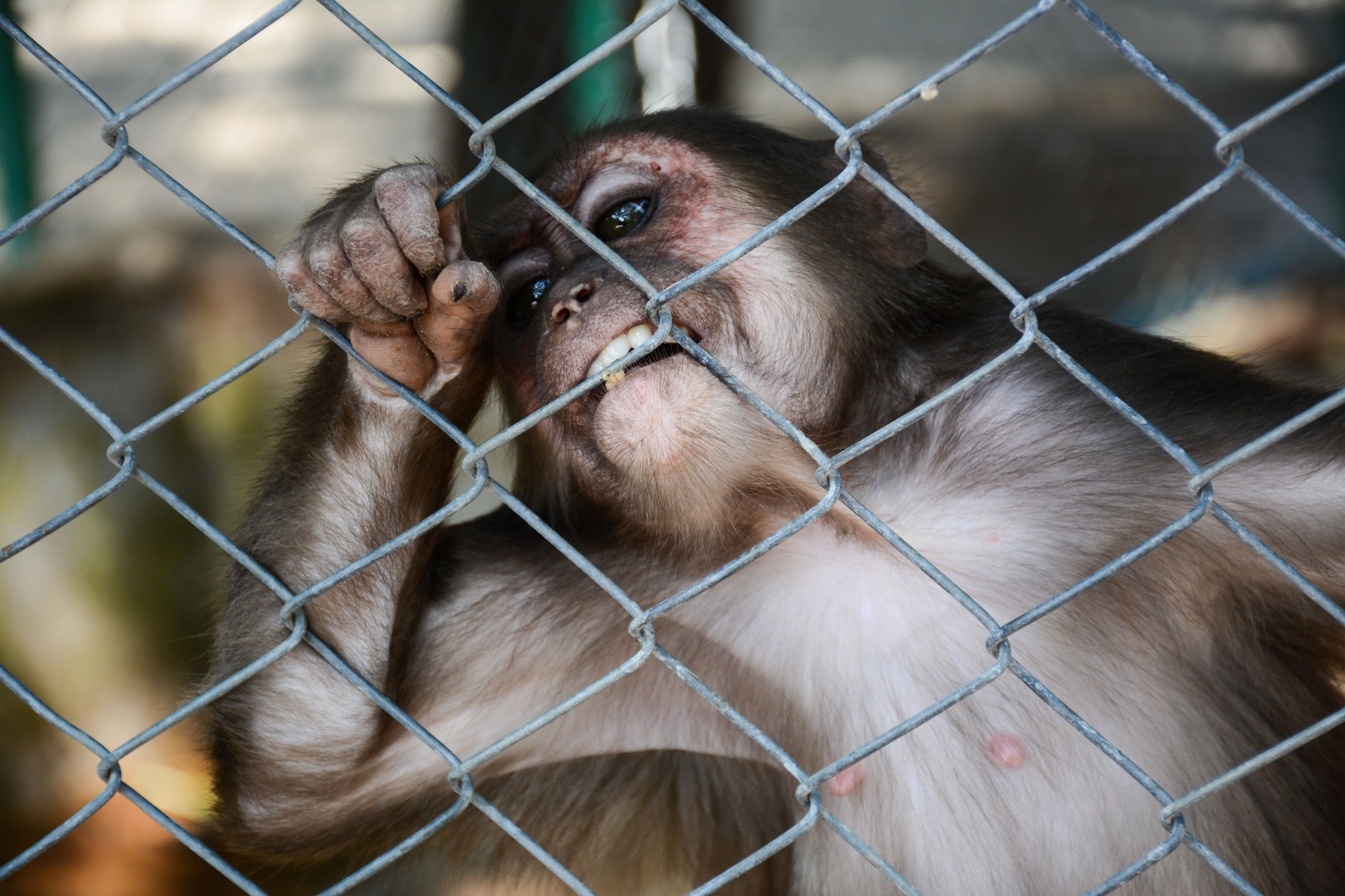Late last month, The New York Times reported that researchers used monkeys to test the effects of inhaling diesel fumes from a Volkswagen. The research was commissioned by the European Research Group on Environment and Health in the Transport Sector, an organization funded entirely by three big German car manufacturers: Volkswagen, Daimler and BMW.
The reaction to this revelation has been unequivocal repudiation — by the public, the German government and Volkswagen itself — of the use of the monkeys. Why? Could the vehemence of the response indicate a tectonic shift in ethical attitudes toward animals? To answer that question requires examining some details about the experiments and the reaction to them.
The research, carried out in Albuquerque, New Mexico, involved placing 10 monkeys in small airtight containers into which, over a period of four hours, the exhaust fumes were piped. Later, a tube was stuck down the monkeys' throats to take tissue samples from their lungs.



















With your current subscription plan you can comment on stories. However, before writing your first comment, please create a display name in the Profile section of your subscriber account page.